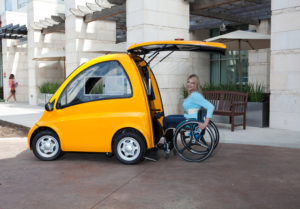Bad in the Service of Good…Or EVIL?
I often find myself disagreeing with, disappointed in, and even demonstrating against President Biden’s policies.
- He has been largely a failure at reversing his predecessor’s detestable immigration policies–and in one notable executive order, even sacrificed 26 environmental laws to fast-track the useless border wall
- He has supported Israel’s strategically idiotic and morally bankrupt wildly overreactive response in Gaza, resulting in the deaths of some 20,000 people (mostly civilians and including thousands of innocent children)—and the homelessness of millions; the US even vetoed a ceasefire resolution at the UN
- He’s moving too slowly on climate change and embraces, along with his endorsement of true clean energy (which I see as a strong positive) some technologies that will make the problem worse, such as nuclear power (about as NON-green a technology as it’s possible to invent)
And yet, assuming he’s the candidate in November, he will get my vote. I admit he might not if the US had adopted ranked-choice voting. But until it does, a vote for any third-party candidate is a vote for the main opponent of your preferred candidate. More importantly, I believe that the bad things Biden has done have been part of his own effort—sometimes accurate and sometimes off-base—to leave the world better than he found it. He is, fundamentally, a good person, And despite never having a majority in both houses of Congress, he’s done quite a bit of good as president:
- Shepherding a phenomenal economic turnaround, the best post-COVID economy in the world, and creating or recovering hundreds of thousands more jobs
- Replacing skepticism with science on topics ranging from global climate change to the safety of COVID vaccines
- Restoring US leadership on the world stage after it was torn to shreds by his predecessor
- Supporting labor, the middle class, the poor, and the disenfranchised—and doing his best to hold big corporations and the super-rich accountable for dong their part
- Championing the right to vote—and the right to have that vote properly counted
As I write this BEFORE the first primaries and caucuses, that opponent is likely to be the orange-haired former president. Yeah, the guy who is facing more than 90 felony counts, who has bragged about a history of sexual abuse (and been accused of many others and found liable in one he didn’t admit to). The serial liar who was caught in 30,000 false statements just during his four-year presidency. The narcissist who thinks rules and laws don’t apply to him. The person who stacked the Supreme Court with people who have undermined the values shared by most US citizens, overturned longstanding legal precedents, and for the first time in modern history, stripped away the rights of whole classes of people.
And, let’s not forget, the man who has promised that if he is elected, he will focus not on governance, not on the economy, not on human rights—but on revenge against his perceived enemies, active harassment of people who might be a different color, ethnicity, political philosophy or religion, and who repeatedly uses language straight out of Hitler.
Yesterday, Christmas 2023, both men issued Christmas messages. Robert Hubbell devoted his daily newsletter to these messages—and their contrasts couldn’t be more stark. Biden spoke of unity, teamwork, kindness, and hope. But DT used his bully pulpit to wish that those he perceives as “EVIL and SICK…THUGS” (which includes the military and those who favor electric cars) “ROT IN HELL” (capitalization is his).
Please make sure you’re registered to vote. That your friends know why you will vote for Biden. And that the records of these two men while in office leave no choice.


